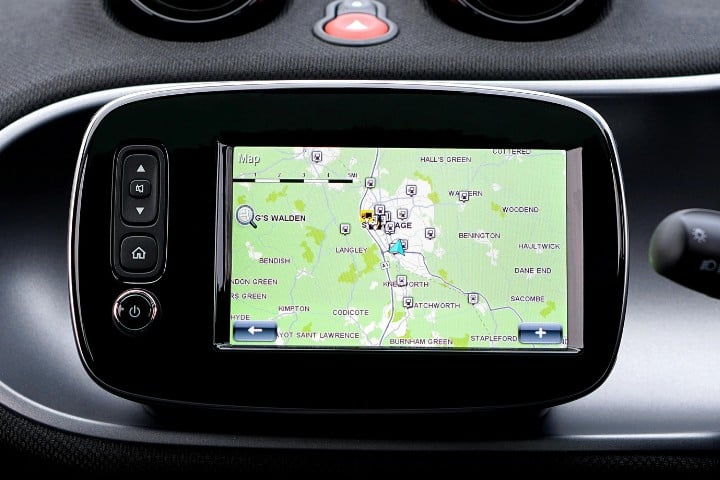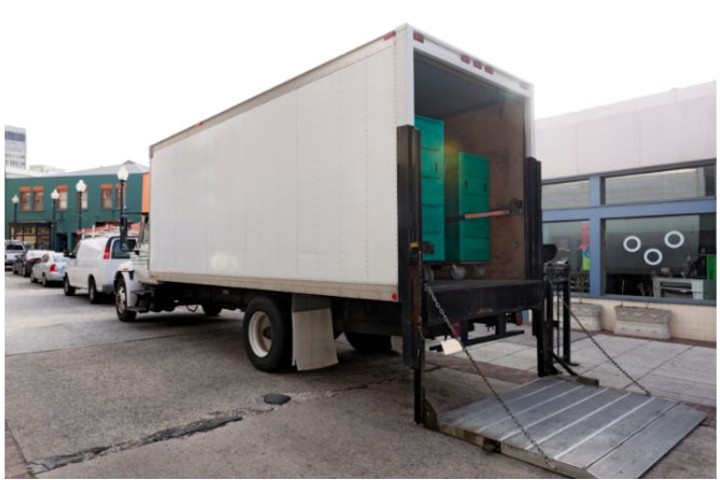
From tight schedules and fluctuating fuel prices to coordinating multiple trucks across vast distances, the moving industry is not for the faint of heart. Customer demands have grown more exacting, expecting timely deliveries, real-time updates, and seamless services. With these escalating expectations and operational complexities, moving companies are consistently on the lookout for tools and techniques to simplify their processes and enhance efficiency.
Over the past decade, technology has revolutionized various industries, and the moving sector is no exception. Innovative solutions, such as the fleet management system, have offered moving companies the much-needed respite from the operational challenges they frequently encounter. Through technology, moving companies can now better coordinate their operations, maintain real-time communication with drivers, optimize routes, and much more.
GPS fleet tracking serves as the backbone of operations for many companies. It provides not only the location of each vehicle but also valuable insights into route optimization, driver behavior, vehicle health, and more. For moving companies, GPS tracking solutions have the potential to transform their operations, converting challenges into opportunities for improved service delivery and increased profitability.
In this article, we’ll unravel the myriad ways in which advanced GPS fleet tracking solutions are reshaping the moving industry, making it smarter, more responsive, and primed for the future.
The Evolution of GPS Fleet Tracking
GPS marked a significant turning point for navigation and tracking systems in the latter half of the 20th century. What started as a military tool soon transformed into a universally accessible solution, paving the way for a myriad of applications, including its pivotal role in vehicle tracking.
In its infancy, GPS was a luxury, commonly found in high-end vehicles and commercial fleets for basic navigation. The initial applications focused primarily on providing directions and identifying vehicle locations. Drivers could navigate unfamiliar routes with relative ease, while fleet managers could manually monitor the positions of their vehicles on a rudimentary map. But while this was groundbreaking at the time, the potential of GPS in vehicles was far from fully realized.
Advancements in fleet tracking technology:
As technology advanced, the capabilities of GPS systems expanded dramatically. Integration with other technologies, like cellular networks and cloud computing, opened a treasure trove of possibilities. Fleet tracking technology transitioned from mere location pinpoints to detailed data analytics, offering insights into fuel consumption, traffic predictions, driver behaviors, and even predictive maintenance alerts. The hardware became more sophisticated, with better satellite connectivity and accuracy, while the software evolved to present intricate data in a user-friendly format.
From basic location services to comprehensive fleet management:
The true evolution of GPS fleet tracking lies not just in the technology itself but in its broader application. Today, it offers comprehensive fleet management solutions. Modern GPS tracking systems are integrated with advanced analytics that aid in route optimization, reducing idle time, monitoring driving patterns, ensuring safety compliance, and much more.
This shift from mere location tracking to holistic fleet management has drastically impacted the efficiency and profitability of moving operations. Fleet managers can preemptively address issues, streamline operations based on real-time data, and ensure optimum utilization of resources. The data derived from these systems allows for informed decision-making, resulting in reduced costs, enhanced customer satisfaction, and a sustainable business model.
Core Benefits of Advanced GPS Fleet Tracking Solutions
GPS integration into fleet operations goes beyond mere tracking; they offer a plethora of benefits that touch every facet of the business. Let’s delve into these core advantages that make such solutions indispensable for modern moving companies
Real-time Monitoring:
- Instant access to vehicle locations and routes: Today’s GPS fleet tracking systems ensure that fleet managers and operators have a real-time pulse on every vehicle. This real-time access means that businesses can provide customers with precise delivery timings, enhance coordination between trucks, and manage the entire fleet seamlessly from a centralized dashboard.
- Immediate response to unforeseen circumstances or emergencies: Accidents, traffic jams, or other emergencies can disrupt the tight schedules of moving operations. With real-time monitoring, immediate interventions can be made. Whether it’s rerouting a vehicle or dispatching assistance, decisions can be made swiftly, reducing potential downtime and enhancing customer satisfaction.
Optimized Routes:
- Automatic calculation of efficient routes: Advanced GPS systems come equipped with algorithms that consider various factors such as traffic conditions, roadworks, and distance to automatically suggest the most efficient route for drivers. This ensures timely deliveries and minimizes time spent on the road.
- Reduction in fuel consumption and time delays: Efficient routes mean less idling in traffic and fewer miles traveled. This directly translates to significant savings in fuel costs and reduces wear and tear on vehicles. Furthermore, it ensures that time-sensitive deliveries are made promptly, keeping customers satisfied.
Maintenance and Vehicle Health Monitoring:
- Early identification of vehicle problems: Modern GPS solutions often integrate with the vehicle’s onboard diagnostics. This means potential issues, whether they are engine troubles, brake problems, or tire wear, can be detected before they escalate into bigger, costlier problems.
- Scheduled maintenance reminders: Preventative maintenance is key to the longevity and safety of a fleet. Advanced GPS systems send reminders for scheduled check-ups, ensuring that vehicles remain in top condition and reducing long-term maintenance costs.
Safety and Security:
- Theft prevention and quick recovery: Stolen vehicles can be a significant loss for moving companies. GPS tracking ensures that vehicles can be tracked in real-time, drastically improving the chances of recovery. Some systems also include features that can remotely disable a vehicle, further enhancing security.
- Monitoring of driver behavior and safety practices: Ensuring driver safety is paramount. Advanced GPS solutions can monitor behaviors like hard braking, speeding, or sharp turns. By identifying and correcting unsafe driving practices, companies can reduce accidents, lower insurance costs, and ensure the wellbeing of their employees.
Operational Efficiency and Cost Savings:
- Minimized operational costs: By optimizing routes, reducing maintenance costs, and ensuring efficient resource use, GPS fleet tracking directly contributes to reduced operational expenses.
- Improved resource allocation: Knowing the exact location and status of every vehicle means that resources, whether they’re vehicles or drivers, can be allocated efficiently. This ensures that no vehicle is left idle for long, maximizing productivity and revenue.
Key Features to Look For in an Advanced GPS Fleet Tracking System
While each GPS tracking system comes with its unique offerings, certain features stand out as essential for a truly advanced and effective tracking system.
Real-time Tracking and Updates:
This feature ensures that fleet managers have instantaneous access to the whereabouts and status of every vehicle, facilitating quick decision-making, enhanced coordination, and efficient operations.
Geo-fencing Capabilities:
Geo-fencing allows businesses to set up virtual boundaries on the map for their vehicles. Whenever a vehicle enters or exits these predefined zones, the system sends out notifications. This feature is especially beneficial for ensuring vehicles stick to their designated routes, monitoring unauthorized use, and enhancing security measures.
Custom Alerts and Notifications:
An advanced GPS system should allow businesses to customize alerts for specific scenarios. Whether it’s overspeeding, prolonged idling, unexpected route deviations, or maintenance reminders, timely notifications ensure that managers can act promptly, thereby preventing potential issues and optimizing operations.
Detailed Reporting and Analytics:
An effective GPS system will provide detailed reports and analytics on various aspects like fuel consumption, driver behavior, route efficiency, and vehicle health. These insights empower businesses to make data-driven decisions, improving operational efficiency and bottom-line results.
Integration with Other Operational Tools:
A holistic fleet management solution should integrate seamlessly with other operational tools. Whether it’s integrating with CRM software, financial tools, or inventory management systems, this feature ensures that all tools work in tandem, providing a streamlined and cohesive operational workflow.
Mobile Access and User-friendly Interface:
In today’s digital age, mobility is paramount. A top-tier GPS fleet tracking system will offer mobile access, ensuring that fleet managers and operators can monitor and manage operations on the go. Furthermore, a user-friendly interface ensures that users, regardless of their tech proficiency, can navigate the system with ease, making the most of its features.
The Future of Moving Operations with GPS Fleet Tracking

The moving industry, equipped with GPS fleet tracking, is poised to undergo significant transformations. While the present-day applications are already groundbreaking, the future holds even more promise.
Predicted advancements in “gps tracking for fleets”:
- Enhanced Precision: Future iterations of GPS systems are expected to offer even more precise location tracking, reducing the margin of error to mere centimeters. This will allow for improved route optimization and more efficient vehicle use.
- Predictive Analytics: Beyond merely presenting data, the next wave of GPS fleet tracking solutions will offer predictive insights. By analyzing past patterns and current conditions, these systems will forecast potential challenges or opportunities, enabling proactive decision-making.
The role of AI and machine learning in fleet management:
- Dynamic Route Optimization: AI algorithms, when fed with vast amounts of data from various sources like traffic patterns, weather forecasts, and historical route data, can dynamically adjust routes in real-time. This means that drivers will be continuously directed to the most efficient paths, even as conditions change.
- Driver Behavior Analysis: Machine learning can identify patterns in driver behavior, predicting potential risks or areas of improvement. Over time, the system can offer targeted training suggestions or safety alerts, further enhancing road safety and operational efficiency.
- Resource Allocation: By analyzing demand patterns, vehicle health, and other variables, AI can suggest optimal resource allocation strategies. Whether it’s dispatching certain vehicles, scheduling maintenance, or optimizing load distribution, AI-powered insights will drive efficiencies.
Potential integration with other emerging technologies, such as autonomous vehicles:
- Autonomous Fleet Management: As the world moves closer to fully autonomous vehicles, GPS fleet tracking will play an integral role in managing these fleets, ensuring that autonomous trucks are efficiently routed, well-maintained, and continuously monitored for safety and efficiency.
- Vehicle-to-Vehicle (V2V) Communication: Emerging technologies advocate for vehicles to communicate with each other, especially in a convoy or fleet setting. Integrated with GPS systems, this communication can optimize traffic flow, enhance safety protocols, and ensure a more cohesive fleet operation.
- Augmented Reality (AR) Integration: Future GPS systems might integrate with AR to offer enhanced navigational aids. Imagine drivers or even autonomous vehicles being provided with an augmented view of the road, highlighting potential hazards, route changes, or points of interest.
Final Thoughts
Advanced GPS fleet tracking solutions are fast proving to be more than just a technological tool, but rather a transformative force reshaping the landscape of moving operations.
For moving companies, embracing and investing in advanced GPS fleet tracking solutions is not just about keeping pace with industry standards; it’s about setting oneself up for sustained growth, efficiency, and success in an increasingly competitive market. It’s time to recognize the immense potential of advanced GPS fleet tracking solutions and make them an integral part of your growth strategy.
We hope you found this blog post on Enhancing Moving Operations with Advanced GPS Fleet Tracking Solutions useful. Be sure to check out our post on GPS Tracking For Trucks to Reduce Insurance Premiums for more great tips!
Have Experience in the Moving Industry? Want an Additional Income Stream? Work With All Around Moving!
All Around Moving Services Company wants you to Partner with us, and we’ll help you make money. Click here to learn more.






